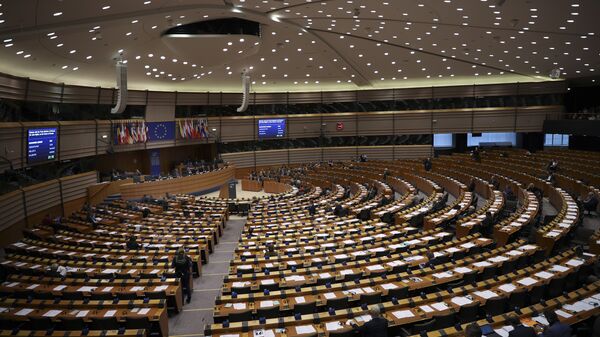The European Parliament has thrown its weight behind an unprecedented resolution that calls for reparations for "crimes" carried out in Africa during the era of European colonialism.
The motion essentially aims to get EU constituent nations to enact reforms that will eliminate what it calls "structural racism" that are said to be experienced by Europeans of African origin. The examples given include apparent discrimination in housing and education, among other things.
The resolution — given the nod of approval by 535 MEPs, with 80 votes against and 44 abstentions — also urges EU members to declassify government archives from the colonial era, a move that would reveal the grizzly details of European conduct across Africa during the age of empire. Furthermore, it calls upon those European states to issue public apologies for atrocities committed against Africans.
Yet, not everyone thinks the resolution is such a good idea.
Oh for crying out loud. How far does this compo go back? The UK could do with some reparation
— Christine Taylor (@christi90551674) 28 March 2019
from……the Romans, the Vikings and those Norman b'tards.
— LastKingofScotland (@KingofLast) 28 March 2019
— Renegade (@festung18802) 29 March 2019
— Jorawar Singh (@Jorawar67484439) 28 March 2019
Moreover, the initiative says that strategies aimed at "workforce diversity and inclusion" should be sweepingly implemented across the EU, a move that would likely raise some eyebrows, considering the recent controversy over policies aimed at workforce diversity, including instances of so-called ‘positive discrimination' that have seen white males in countries like the UK pushed out of possible jobs in favour of people from backgrounds that are seen as historically oppressed.
An extract of the resolution's text reads, "histories of injustices against Africans and people of African Descent — including enslavement, forced labour, racial apartheid, massacre, and genocides in the context of European colonialism and the transatlantic slave trade — remain largely unrecognised and unaccounted for at an institutional level in EU member states."
READ NOW: EU States Embracing China's Silk Road, Nord Stream 2, Defying US – Journo
While the resolution is legally non-binding, it will likely be seen to social justice campaigners as a progressive step in the right direction. Many such groups in the West have long peddled the notion of so-called ‘white privilege,' which says that white people have enjoyed disproportionate benefits in areas like work, housing, education and politics over to the disadvantage of their black counterparts.
Amel Yacef, who is the chair of the European Network Against Racism, told the Guardian in an interview that the bloc's vote was a "historic, watershed moment for the recognition of people of African decent in Europe."
"The European parliament is leading the way and sending a signal to EU member states to tackle structural racism that prevents black people from being included in European society. The ball is now in their court: we need concrete action plans and specific measures now," she added.
READ MORE: EU to Boost Border Security by Adding 10,000 Personnel Amid Migrant Crisis




